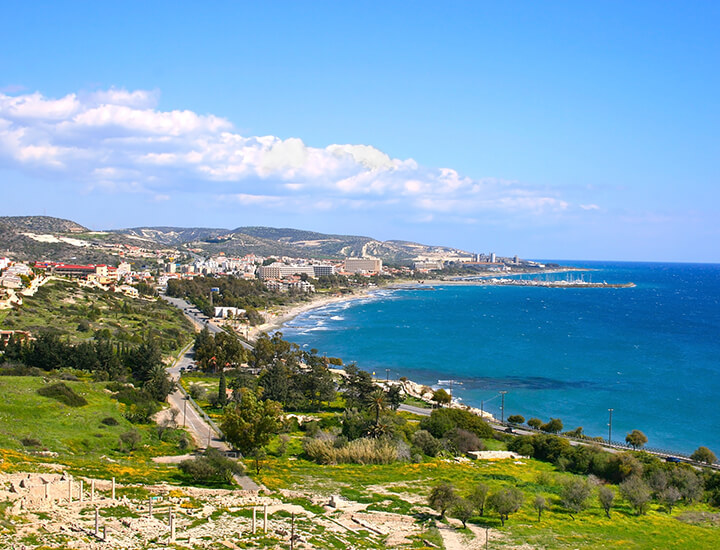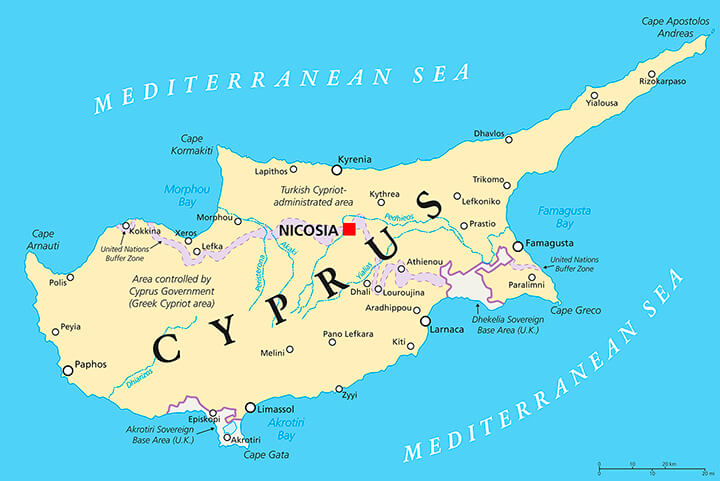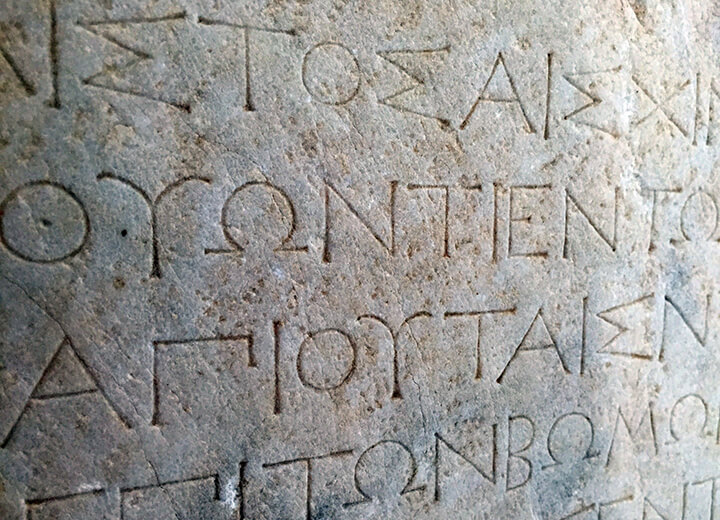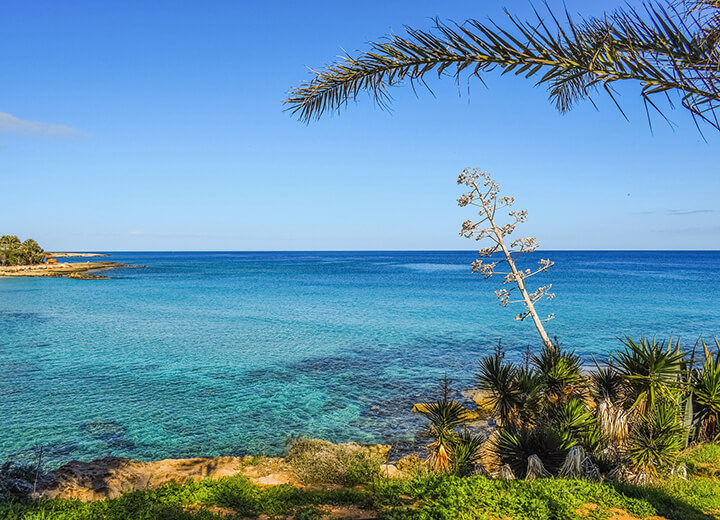The education system in Cyprus starts with pre-primary, followed by primary, secondary and higher education.
Pre-Primary Schooling
Since 2004 it became compulsory for children to attend pre-primary school (also known in Cyprus as Nursery Schools and Kindergartens) for one year before admission to primary school. All schools are co-educational.
The figures from the Statistical Services show that a trend toward Cypriot pupils being sent to private school has grown year on year. There are 37 private schools in operation, the majority teaching in English. You can download the statistical data of public schools v private schools in Excel format, for the years from 1985 to 2016.
There are three types of pre-primary Schools in Cyprus for children between the ages of three years, up to five years and eight months of age, and all must be approved by the Ministry of Education and Culture, which also supervises and regulates them.
The three types are:
- Public Kindergarten
- Community Kindergarten
- Private Kindergarten
Public nursery schools are free for children aged between 3 years and eight months to 4 years and eight months (the compulsory attendance period), with tuition fees payable for children who are under that age.
There are tuition fees to pay for attending Community Nursery Schools, the amount of which is determined by the Parents Association and are dependent on the school’s financial obligations. Private Nursery Schools incur fees for admission and tuition of each child, the cost of which varies depending on the school.
Registration Requirements
All children have the right to register in a public nursery school, regardless of their nationality, if they are three years of age on 1st September of that year.
However, they will only be accepted if places exist, and priority goes to children who have reached the age four years and eight months, on 1st September.
The registration and applications for registration to public and community pre-school usually take place in the second week of January.
At enrollment, a Cypriot child should have a birth certificate submitted, and a foreign child should have a certificate or document (passport) that has been issued by a competent authority and verifies the child’s date of birth to the satisfaction of the Ministry of Education and Culture.
Public Nursery Schools are open from 7:45 am to 1:05 pm, Monday to Friday, while Community Nursery Schools can extend their hours up to 2:45 pm, with some offering all-day schooling. Public holidays are adhered to in Public Nursery Schools the same as in Primary Schools. However, Community and Private Nursery Schools are not obliged to adhere to the same schedule.
Primary Education
Education is compulsory for all children who have reached the age of 5 years and eight months on 1st September of the year that their study will begin, up to the age of 15 years, or the end of study, whichever comes first.
Education from the age of 12 to 18 years is classified as secondary education. When primary school is complete, a child will receive a leaving certificate which is required for registration at secondary school.
Cost of Primary Education
Primary education at public schools is free; however, parents are responsible for the food expenses of their child. The feeding program follows a strict food ration which is agreed together by the Ministry and the parents and is available from the school canteens. Private schools are not free, and the costs differ depending on the school.
Registration Dates
Registration to public primary schools takes place in January. However, the exact date is determined each year by the Minister of Education and Culture. Confirmation of registration typically takes place around the middle of June, but again the exact date is determined by the Minister. Children can be registered for primary school if they will have reached the age five years and eight months on 1st September of the year of study.
School Dates
The school year begins on 1st September and ends on 31st August the following year. The same documents as detailed above (registration for pre-primary school) are needed for enrollment of each new child to primary school. Children must wear the proper school uniform.
Class Times
Public primary schools open from 7:45 am until 1:05 pm. Private school hours may differ. More than 100 public schools now offer ‘all day’ voluntary school hours.
Holiday Schedule
Public primary schools are obliged to close on all Cyprus public holidays and any holidays which the Ministry of Education and Culture declares a school holiday. However, private school holidays may differ. Here are some of the known dates:
• October 1
• October 28
• December 23 – January 6
• January 30
• March 25
• April 1
• May 1
• Good Monday – Friday after Easter Week
• June 11
• Ascension
• Holy Spirit
• Green Monday
• Archbishop’s name day
• Feast of the Saint of community/parish
• Summer holidays: From the Saturday after the penultimate Friday of June up to the Sunday before the first Monday of September.
Subjects Studied in Cypriot Primary Schools
Lessons in private schools can be taught in English and Greek as well as other languages.
In public schools the following subjects are taught in Greek; Greek Language, Mathematics, Religious Studies, History, Geography, Science, English Language, Art, Music, Physical Education, Domestic Economics, Design & Technology.
Remediation
Children move up a class each year according to their age, or during the school year if special reasons exist, and with the approval of the relevant inspector, but they cannot move up to a higher class than their age allows.
In individual cases, a child may be compelled to repeat a year. However, this can only occur once during a child’s primary education, with the approval of the relevant inspector, and the child’s parents having been informed.
Special Education Classes
The Government of Cyprus also must provide education, or special education to people with special needs or with disabilities, from 3 years of age, up until the completion of their educational course. A child with disabilities or special needs must be evaluated by the District Committee of Special Education and Education of each province.
The District Committees have a duty to adequately assess the needs of each child considered likely to have disabilities or special needs, and after assessment shall decide whether or not to grant the child special education and training.
If it is decided to provide such education, they will determine the details of such specific training.
Further Information on Primary Education
Further information and contact details for pre-primary, primary, secondary and special education schools, can be found at the Ministry of Education and Culture website.
Alternatively, you can download the English Guide to Education in Cyprus provided by the Ministry of Education and Culture in pdf format (may be incompatible with mobile devices). Please note this is a significant file of 29 MB in size.educ
Secondary Education in Cyprus
Cyprus secondary education begins at the age of 12 and can continue to the age of 18. However, it is only compulsory to stay in secondary school up to the age of 15.
Secondary education from age 12 to 15 (Lower secondary school) is known as Gymnasium, while schooling from age 15 to 18 (Upper secondary school) is known as Lyceum.
Cost of Secondary Education
All public school secondary education is provided by the state free of charge, but private school secondary education is not, and the cost of private education will vary depending on the chosen private school.
Independence of Private Schools
Private secondary schools maintain a considerable degree of independence in their operation and curricula. However, the majority of them are registered with the Ministry of Education and Culture and comply with specific curriculum and facility requirements mandated by law.
Gymnasium Level
Students at public Gymnasium are taught foreign languages of English and French. All students take written exams in June. Upon completion of Gymnasium level, a school leaving certificate is awarded.
Lyceum level is open to all pupils who have successfully completed the Gymnasium level.
Lyceum Level
If the student chooses to continue their education to the Lyceum level, they can choose between Unified Lyceum or Technical and Vocational Education (TVE).
At the Lyceum level students have more flexibility to form their own programs according to their aptitude and interests. Unified Lyceum students can select which 2 out of 7 languages they wish to study, those being; English, French, German, Italian, Spanish, Russian and Turkish.
TVE Lyceum students choose from faculties in theoretical and practical streams of Mechanical engineering, Electrical engineering, Civil engineering – Architecture, Design, Woodwork – Furniture manufacture, Artistic studies, Clothing, Hairdressing, Agronomy or Hotel and Catering services.
Private secondary schools that teach in English will offer education based on a modified English National Curriculum. Subjects offered will vary depending on the school, but as a guideline, they would include:
- Art
- Drama
- English
- French
- Geography
- Greek
- History
- Information Communication Technology
- Mathematics
- Music
- Physical Education
- Religious Education
- Sciences
These courses prepare the student for the GCSE/IGCSE and O-Level examinations, and a school leaving certificate approved by the Ministry of Education, and recognized by universities worldwide.
Further Information on Secondary Education
Further information and contact details for pre-primary, primary, secondary and special education schools, can be found at the Ministry of Education and Culture website.
Alternatively, you can download the English Guide to Education in Cyprus provided by the Ministry of Education and Culture in pdf format (may be incompatible with mobile devices). Please note this is a significant file of 29 MB in size.
Colleges in Cyprus
Cyprus has many high-quality private colleges, as well as Government Training Institutes and universities.
Currently, there are 41 Government Training Institutes throughout Cyprus offering courses in foreign languages to all levels which include Greek, English, French, German, Italian, Spanish, Russian, and Turkish.
They also provide training courses for computer science and accountancy. Scholarships are available.
The classes are reasonably priced, and commence around mid-September, through to the last week of May. Registration for courses is during June.
Courses are on every Monday, Tuesday, Thursday, and Friday from 3 pm to 6 pm, with adult classes in the evenings from 6.30pm – 8 pm.
For more information see the Ministry of Education and Culture web site which is now available in both Greek and English.
Private Colleges
Private colleges are numerous, with most being housed in the capital city of Nicosia. They offer many diploma courses and courses for Postgraduate, Bachelors, and Masters degrees.
Some specialize in specific courses, while the larger colleges will offer classes in several subjects.
There are also language courses available. The colleges teach in Greek and other languages, so it is best to check before you register if you need to know Greek or any other language fluently to be able to enroll.
Some of the courses available in Cyprus colleges include:
- Secretarial Studies
- Business Administration
- Accounting
- Computer Studies
- Maritime Studies
- Tourism and Hospitality
- Hotel Management
- Mechanical Engineering
- Electrical Engineering
- Civil Engineering
- Architecture
- Marketing
- Human Resources Management
- Journalism
- Culinary Arts
- Health Management
- Nursing
- Social Work
- Pharmacy Technicians
- Beauty Therapy
- as well as many language courses
Registration
Courses can be taken full or part-time. Each college has its registration dates and procedures, so it is best to find the college you wish to attend and inquire about their specific procedures.
Distance Learning
Cyprus also has an Open University offering undergraduate and graduate courses, as well as training and vocational programs in ‘open and distance learning.’ The awarded degrees are equivalent to those of all accredited universities worldwide, operating on the European Credit Transfer System (ECTS).



